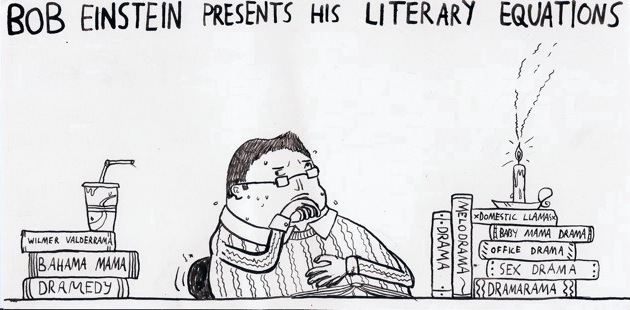

I have good evidence to support my claim, that Anton Chekhov was Russian Mark Twain. Whoa, waitaminute, that was almost poetic in meter and rhyme. I mean, not "good poetry" poetic, but let's not lose focus by burying the lead. I'll save that for another time, when trying to write of good meter and rhyme. ERGH.
(An aside: Chekhov is now the most recent on my tour of the 19th century Russian authors whom I've read and who fascinate me / are good, enjoyable writers, but enough about that.)
The topic at hand is Russian Mark Twain, aka "Anton Chekhov" to the uninitiated. Twain cared about little people and so did Chekhov, and both brilliantly satirized the hypocrisies and inequities that were thriving in the nations and cultures to which they belonged. In Russia, it was antediluvian feudal treatment of the peasant class by the landed aristocracy and czar. In America, it was the mistreatment of the working class, yes, but more specifically the recently freed slaves in the post-bellum American south, which marked the external circumstances of the greater part of Twain's writing career, circa the latter 19th century.
But that's the obvious and easy stuff to point out. What's even more obvious as they were like the Bizarro World versions of each other, physically-speaking. How do I know this? Because, look at their faces. Stately, dignified Anton Chekhov and Southern genteel, somewhat rustic and rough-around-the-edges looking but still gentlemanly, Mark Twain. Plus, "Anton Chekhov" was not Anton Chekhov's real name -- it was Samolfsky Clementoevskis, but because of his fondness for the Russian game, checkers, viz. chekers in the origional Russian, he chose "Chekhov" as his nom de plume.
HAHAHA, of course I am lying -- "kidding" as jocular and sometimes mean-spirited liars will say. I'm lying about all after the "Plus, Anton Chekhov . . ." If Anton Chekhov's name were not really "Anton Chekhov" he sure did a great job of hiding it! Because now he is dead and there is no record, probably, so we can never be certain. (And also I'm not mean-spirited on the whole, in my opinion.)
In "Anton Chekhov: Selected Stories," what becomes immediately apparent is the range of thought and empathy which Chekhov had in his repertoire. But despite his skills, he didn't hesitate to tell a story in honest terms, sketching characters who weren't romantic visions of what he felt people should be. Like Twain, he seems to have a penchant for showcasing the reality of the lives and the struggles of the people he wrote about, be they wealthy or poor, peasant or gentry, foreign or native born. He also had a more satirical bent, that mocked the existing conditions of society he must have considered travesties, at the least. There are a number of Chekhov short stories that immediately bring to mind the humorous written stylings of Mark Twain: "The Confession," "A Nincompoop," "Surgery," "A Cure for Drinking," "Marriage in Ten or Fifteen Years," and "The Father." I encourage everyone to check them out, and I'm fairly certain most will be available for free online. (None of those listed are terribly long, either, if that helps.) A good Mark Twain short story that concerns itself with similar themes of social injustice and racism / xenophobia is, "Goldsmith's Friend Abroad Again." It's the story of a Chinese immigrant excited by the American Dream of everything being "completely free and completely equal." You can imagine that things don't work out entirely as the Chinese immigrant hoped.
Chekhov is definitely one of those writers who faired exceedingly well with the short story, of that there is no debate (i.e. there's always debate but I'm a fan of his short work and not interested in debating it). However, one of his works I especially liked was "Three Years" -- which qualifies as more of a novella or novelet (or anything indicating size greater than a short story but falling short of novel length). "Three Years" is also more akin to his contemporary Russian writers in its seriousness of tone and subject matter, and notwithstanding a great deal more philosophizing by his characters than that which is found in his other short stories. "Three Years" brings to the fore the stultifying power of the political economy in Russia on even its presumed benefactors, the wealthy class, and demonstrated by the impotence and fraility of its main character, Laptev, and his aristocratic, working-man's family of entrepreneurs, in which his father is the virile, patriarchal quintessence of that ideal and, likewise, a very human realization of its flaws / morbidity. It is a far less ribald tale than his more satirical works that bring to mind some of Mark Twain's best short stories and novels.
But in that way it does also represent the other dimension of Chekhov's work, one that seemingly reflects the very earnest distrust he felt for the establishment, and how the present, oppressive conditions of his homeland were damaging to all who lived by them. It's hard to satirize something so starkly and unmitigatedly abysmal as 19th century Czarist Russia, which would be like if you were trying to satirize Nazism or Stalinism (although Orwell did well in the latter case, but it took animals and allegory, something so ironically innocuous as a children's fable). I'm not of course saying that Chekhov was purposely telling things like they were, in less than satirical fashion, in the case of "Three Years" and in other stories, because that's the only way conceivable / appropriate to describe the situation. He blurred the line, doing both satirical and dramatical representations. I just understand the motivation to decide transparency is the better course in certain cases, and to remove any abstraction. To say what you mean, to the extent that that is doable.
Bravo, Chekhov, bravo! (And bravo, Mark Twain!)





